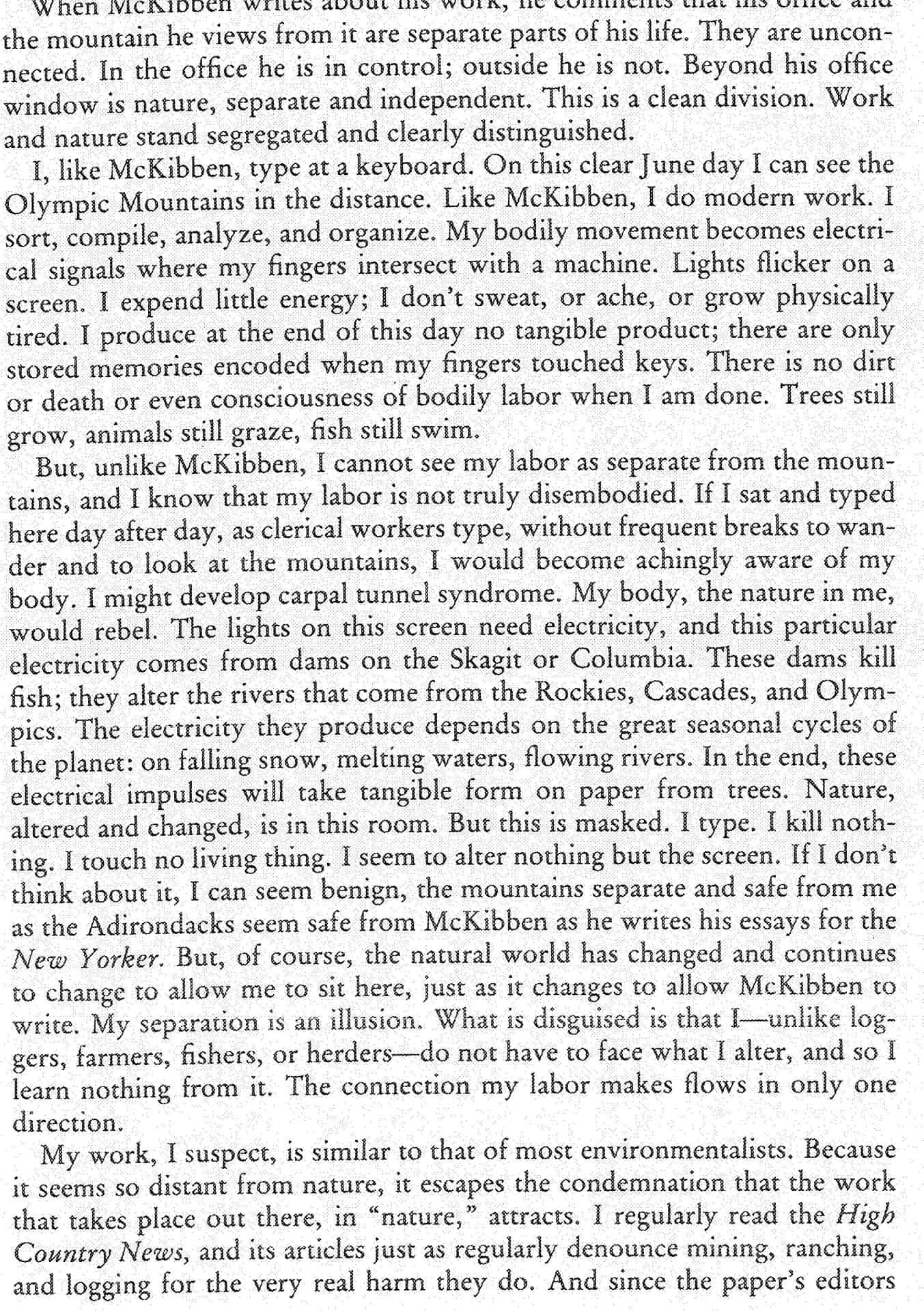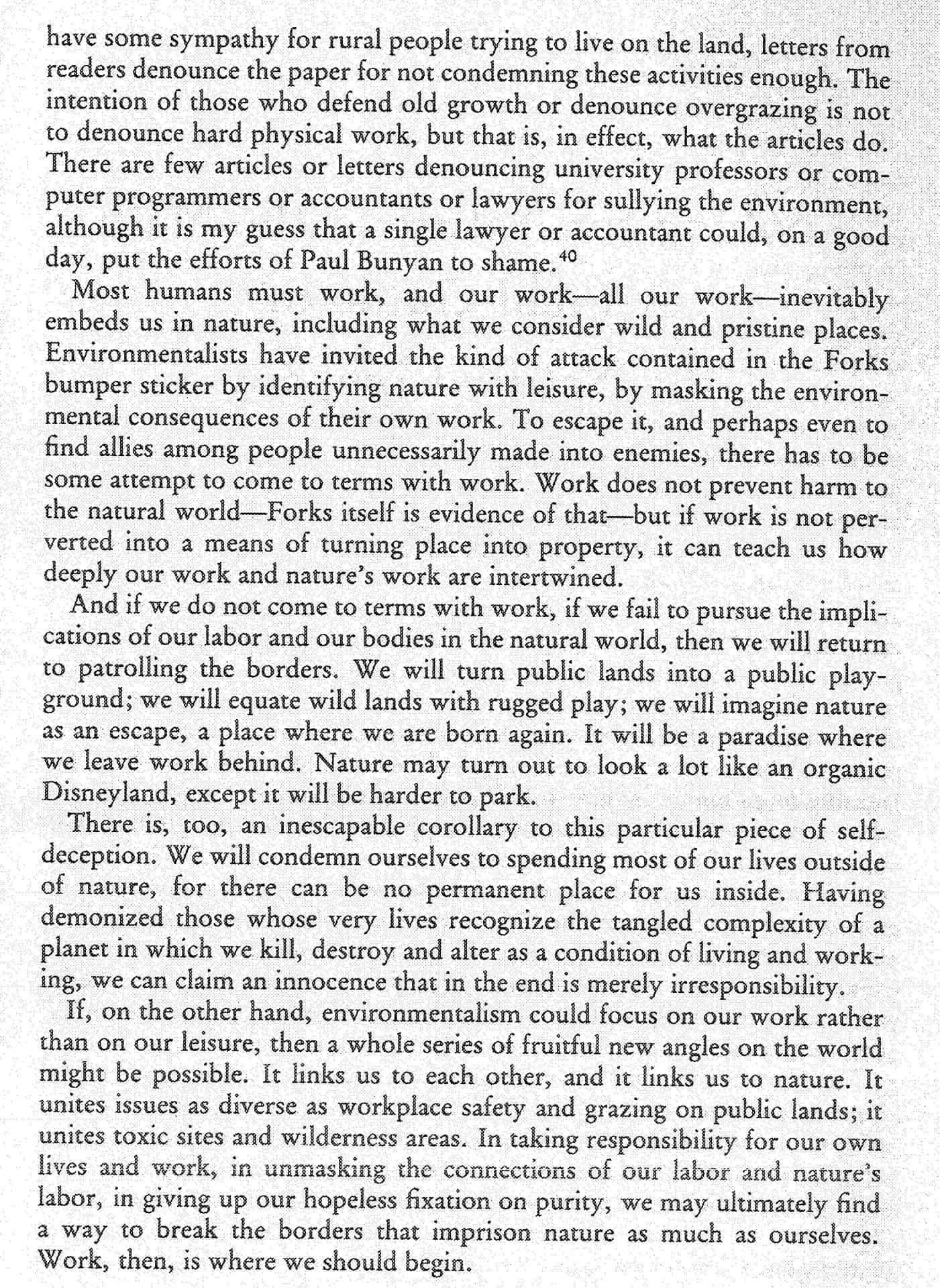We are entering a more philosophical period on this blog; Virtual Book Club on Botkin’s “The Moon and the Nautilus Shell” starts September 9. Mike Wood will ask us to reflect on our underlying values for public lands when we get back from the weekend next Tuesday.
I ran across this serendipitously while I was looking for something on the internet. It’s a chapter from Bill Cronon’s book, “Uncommon Ground,” published in 1996 (!). Remember Botkin’s book Discordant Harmonies was published in 1992. Maybe we all will keep circling around until we get the philosophy right. Well worth reading, and also relevant to the O&C Lands discussion. It is by a fellow named Richard White (I think it’s this guy) and relates to the way we think about work. And while some of us thought that the “timber wars” were over, and as Chief Thomas said here (in 2000):
The transition to the environmental era has not been easy and is still underway. On one side, the hard-core environmental movement cannot come to grips with the consequences of victory. They are still wandering about the battlefield bayoneting the wounded. Having won great victories, it is essential that they move to support the changes in agency missions they have helped engender.
On the other edge of the spectrum of interest in the National Forests are those who engage in a ritualized “ghost dance” aimed at resurrection of the “good old days” of the 1980s. Having suffered great defeats, it is essential that they move to ensure that some justifiable – and needed – level of resource extraction continues.
It has been observed that, in our democracy, decisions are made by the majority of the minority that is deeply concerned about a particular issue. These are the people, on both sides of the debates, who are the minority that truly cares about the future of the public lands.
The vast majority of those not so committed to their causes weary of the noise and smoke of a battle that is over and demand a truce and the stability (which will be temporal) that comes with that truce. So, I suggest, it may be time to fall back on that ancient wisdom to be applied when we weary of battle — “Come, let us reason together.”
It seems that some of the same philosophical questions of ten or twenty years ago, with the din of owl-shootings in our ears, continue to present themselves.


